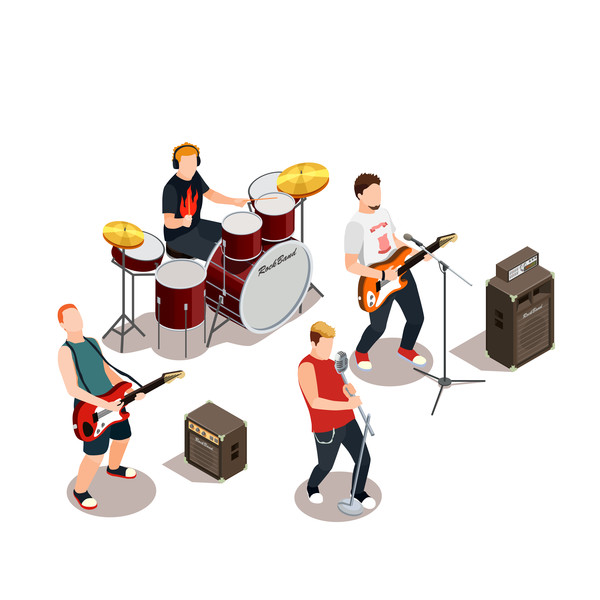Solutions during the COVID-19 pandemic

YONSEI UNIVERSITY’S club culture plays a key role in its traditional university experience. From acting in musicals to publishing articles, Yonsei University’s diverse clubs offer a wide variety of choices for students to explore, learn, and grow. Spread over seven fields of arts, social service, religion, performance, sport, and academics, there are over 150 clubs in the university. However, these clubs have grounded to a halt in the COVID-19 pandemic. Social distancing measures restricting more than five people to meet in person have stretched thin the cohesion of clubs and have left many new members questioning the role of club culture in universities. To this end, the dong-a-ris of Yonsei University have responded in force.
Problems for clubs
On the 23rd of December last year, the South Korean government implemented new social distancing measures in the face of a spike in COVID-19 patients. In what was to be called the “5-person rule,” the government restricted all gatherings to less than four people, with special exceptions only for family households. Already strained since March by the low level of interaction when the government imposed a lockdown for two weeks, clubs at Yonsei University saw their roles increasingly diminished by these new rules, which continue to this day.
For performance and sports clubs, the new regulations meant that members could not meet up for regular practices or participate in events. Euphonia, the amateur orchestra of Yonsei University, have still yet to hold its 63rd and 64th concert. “While we tried to work around the 5-person rule by hosting smaller group concerts called eum ak hyang sang hwes with four players, we still could not coordinate the time, location, streaming, and practices and had to cancel our performances,” a former member of the Euphonia council told The Yonsei Annals. While many official sporting events have started again, amateur events still remain under tight restrictions and many clubs have found it difficult to play. Such performance-based clubs have found it impossible to find meaning during the COVID-19 pandemic.
Other clubs such as religious and academic clubs have been less affected. Religious clubs have reverted to hosting their activities online such as JDM, which has begun to host its virtual Tuesday prayer sessions. Academic clubs such as the Yonsei Mock Assembly have also moved their seminars online and have faced few changes to the meetings themselves.
However, online meetings have had a clear adverse effect on the morale and cohesion of members. Club members do not meet or interact, failing to build a sense of community that had existed previously. “While club activities do not help me in studies or build up my career, they do help me meet new people, especially my seniors, and allow me to learn from their stories,” said a student in an interview to the Annals. “However, I was not able to meet any club members nor build personal connections with my seniors,” she said. Disheartened, the student eventually quit one of the two clubs she had joined. Stories like this are common among clubs, and so-called “ghost clubs” have appeared, lacking any cohesion and meaningful interaction.
These “ghost effects” have had an adverse effect on the productivity of clubs, especially those actively participating in competitions. A former member of S&D, a joint market research and marketing club considered to be amongst the “big three” in South Korea, stated that member meetings over Zoom became extremely dull and bland. He was disappointed in the lack of camaraderie and affinity each member had for the club. Meetings became shorter and ideas dried up, resulting in the club falling out of many marketing competitions, a first for the club in recent memory. The member subsequently left the club to participate in competitions with his small group of exiting friends.

Yonsei’s solution
In the face of such challenges, many clubs have taken a leading role in solving the problem of running clubs online. Leading the charge has been the General Student Club Union (GSCU), the official student body governing all clubs in Yonsei University. As the budget of the GSCU has remained the same during the pandemic, the organization has been able to take advantage of its resources to constructing online platforms to transform dong-a-ri culture.
Last March, the GSCU hosted an online dong-a-ri fair, the first of its kind in the university. This event was created as an online alternative to the offline club fairs at the beginning of each semester. All clubs within Yonsei University could apply to a virtual booth in the online “grounds” and could decorate their stands with flyers, banners, and pictures of club activities. The online platform brought with it unique benefits; videos of cute characters dancing online went viral on social media, and many clubs were able to leverage their social media presence to boost attention to their work. “It was such an interesting experience,” stated a freshman in the Department of Political Science. “We could custom-made characters to freely roam various booths.” After participating in the virtual fair, the freshman subsequently joined the Yonsei University rowing club.
Many individual clubs have been able to make online meetings much more productive as well. Eulim, a band in the College Social Sciences, has conducted online practice sessions since December, and has designated times for members to turn on their cameras at individual practice booths in the school. During this time, seniors from the upper classes log into Zoom to give an online one-on-one lesson to new members of the club. They can evaluate everything from the posture, finger placement, and rhythm of new players, all from the safety and comfort of their homes. Members told the Annals that this allowed members who would not have otherwise been able to come regularly to practice sessions in Seoul a chance to learn and give feedback over the break. Juniors can also look at video recordings of the sessions, which means that they can always replay the video afterward to get a more in-depth evaluation of their playing. Being online also means that former members of the band can also pitch in, resulting in better feedback overall. These activities have borne fruit, with Eulim conducting online band performances even during the COID-19 pandemic.
Clubs participating in competitions have also been able to expand their opportunities. The Yonsei Underwood Union, the debating society of Yonsei University, has been able to participate in online debating competitions across the world. Previously, major competitions like the World University Debating Championships and the North East Asian Opens required students to travel to other countries, usually in Europe or China, which had to be covered by the students. With added competition fees and expenses for lodging and food, many members were unable to participate in international competitions. “I felt sorry for my members,” said a former president of the club. “It was my responsibility to give them opportunities, but I simply could not send my members to competitions,” she said. She also complained of stagnation of talent within the South Korean debating scene, as a result of being insulated from the international competition scene.
However, this year, with the debating competitions now online, a record number of YUU teams were able to participate in the Taipei Open, without the burden of costs and travel. Even novice members were able to participate and learn more easily. Preparations are now in full-swing to participate in the World University Debating Championships held online this year, with more teams participating in the international event than ever before.
* * *
The COVID-19 pandemic has had an adverse effect on club activities. However, they also have had some benefits, and many clubs are working day and night to come up with ingenious new solutions to existing problems. In a time of great difficulties, Yonsei University’s clubs are making bold new moves to turn risk into meaningful opportunities.

